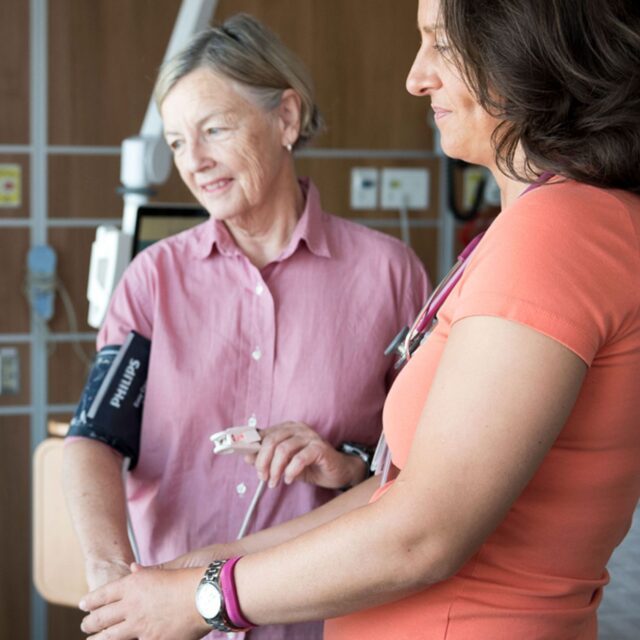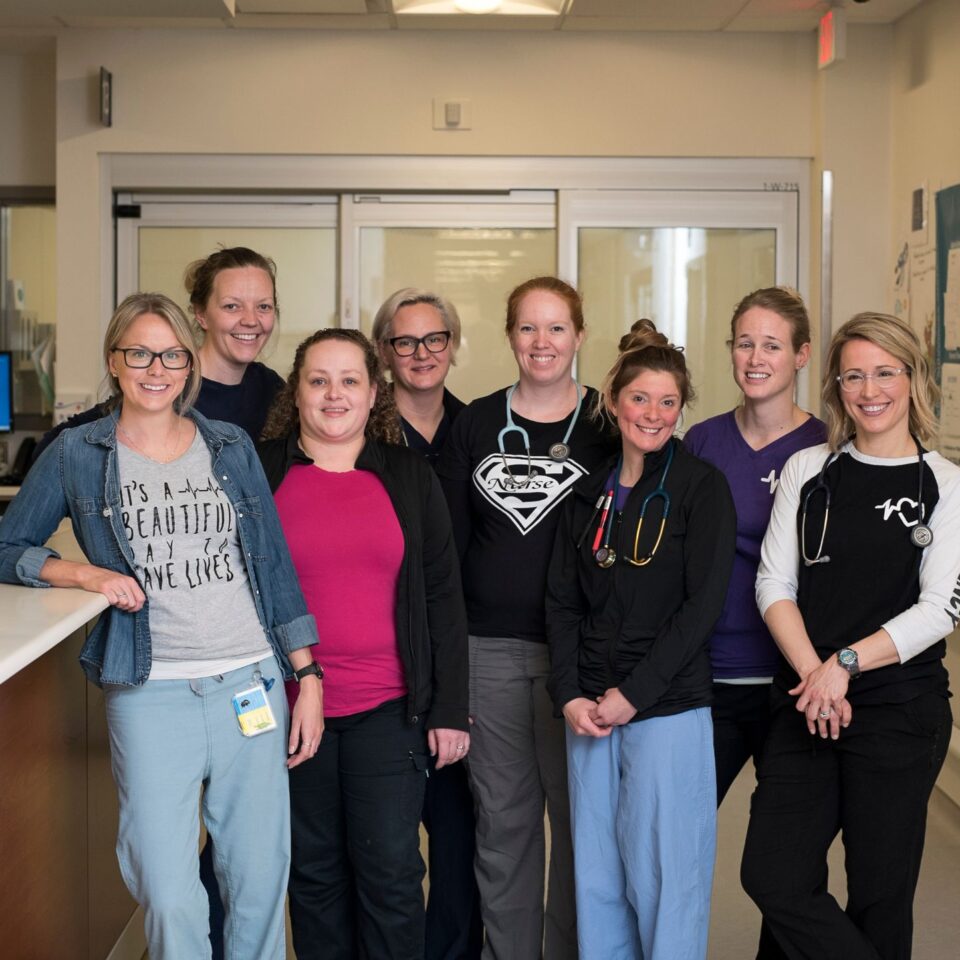Supporting Mental Health During the Pandemic
- Share This Story

Navigating what a new normal looks like during a pandemic can be challenging. Amanda Charlebois, a Social Worker at the Practical Clinic at Oakville Trafalgar Memorial Hospital, recognizes that changes in routines, normalcy and schedules, can also mean changes in mental health for some people.
“Feeling anxious during a pandemic that has not happened in modern history is completely normal,” says Charlebois. “It’s actually a very adaptive response, as having these feelings is our body’s way of protecting itself.”
While individuals may find that feelings of anxiety and unease are affecting their sleep and their productivity, Charlebois says this is the perfect time to engage in pleasurable and nourishing activities.
“Taking part in things that you have done in the past that help you take care of yourself is extremely beneficial. Something really positive we can focus on during this time is doing our best to take care of ourselves, knowing this isn’t forever.”
Charlebois suggests that focusing on activities that bring us joy can have significant benefits. These activities include going on walks, having dinner as a family or following handles on social media that share uplifting content during this time. Although this might look different for every person, looking at the activities that bring us joy can have a positive impact on our daily routines.
“It’s really helpful to look for some beautiful things that have come out of this as well. Maybe it has forced us to be out in our communities walking more. Maybe it’s realizing how much natural beauty is around us. Maybe it’s even having extra time to connect with friends and family through phone, email or Zoom calls in a meaningful way that we haven’t had time to do in the past.”
Some individuals may long for things to go back to normal. Missing friends and family is completely normal. Recognizing these feelings and having things to look forward to can be great for our mental health.
“Post-quarantine, there might be some really cool things we discover about ourselves that we continue to implement into our routines. Maybe I discovered that walking outside for half an hour doesn’t drain my energy, and that it actually energizes me,” says Charlebois. “I wouldn’t have known that if I didn’t have this experience.”
Implementing gratitude practices is valuable when it comes to improving our mood and overall outlook during this time. Gratitude practices can be one to three things we are grateful for each day.
“Gratitude gives yourself and your family that time to check in. You might be grateful for something like your health. It can be big or small. Recognizing the things in life you are thankful for can help shift your mood when struggling with anxiety, anger and resentment. Gratitude helps us see what we have in our lives right now.”
As well as practicing gratitude, practicing self-love and kindness can help improve mood. Showing yourself kindness starts with acknowledging what we are feeling during this time. Taking a moment to recognize these feelings and knowing that there are so many people who share the same feelings right now is extremely valuable.
The kindness you show yourself during this time may look different than the previous ways you have been kind to yourself. Showing self-love and kindness is such a positive thing you can give yourself right now. And however that looks is perfectly okay.
Focusing on compassionate things you can do for yourself right now can also impact mood and overall mental health.
“People so often want to care for and show love to others. It is really important during these times that we are making ourselves the recipients of that same care and love,” says Charlebois. “Any time we can start implementing these habits is a huge win. Being kind to ourselves is not pandemic specific. This idea of taking care of ourselves on a regular basis is a skill we can learn now and use throughout our lives.”
Kindness during this time can also go beyond the self. Checking in on your friends and family members can bring feelings of togetherness. It can be a call to a friend letting them know you’re thinking about them, or a check-in with an elderly relative or neighbour.
“Kindness is contagious,” says Charlebois. “It doesn’t have to be big. It can be in the little things as well. Kind actions don’t have to be large to benefit ourselves and others.”
“Remember, everything we are feeling right now is completely okay and completely normal. It is so important to just be kind to ourselves as we move through this together.”
Stay in the know.
Find out how your support makes great care possible.














